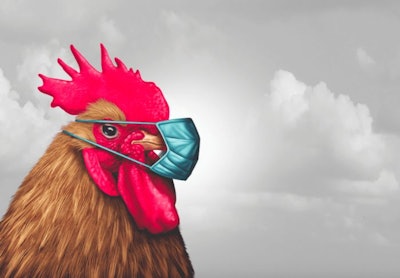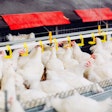
It’s extremely unlikely that people can contract COVID-19 through exposure to poultry and other livestock or the handling or consumption of animal carcasses, finds a new report from the Food and Agriculture Organization of the United Nations (FAO).
Contact with livestock, namely live pigs and poultry, is extremely unlikely to expose humans or other animals to COVID-19. However, the report did note that additional research on the susceptibility of cows, rabbits, horses, sheep and goats to the virus was needed.
Sufficiently heat-treated animal products that were free from contamination, as well as raw products from poultry, pigs and aquatic animals, were also considered to only have a negligible risk of transmitting the disease.
FAO plans to continue research into the ways COVID-19 can spread between some animals. Up to 75% of emerging infectious diseases worldwide – including coronaviruses – are zoonotic, which means that they can infect people and animals. In the case of COVID-19, the virus probably originated in bats, although an intermediary animal may have also played a role in transmitting the virus to humans, scientists say.
“The FAO encourages public health, veterinary and wildlife authorities, and forestry and natural resources management to work closely together with a One Health approach to investigate SARS-CoV-2 (COVID-19) transmission between animals and humans, provided conditions and resources allow,” the report said.
No susceptibility to COVID-19
These findings match the results of a German study published earlier this year that revealed that chicken and pigs aren’t susceptible to COVID-19 and do not post any additional risk to human health.
It’s also extremely unlikely that food or packaging can spread the disease, according to guidance for food producers and processors from the World Health Organization (WHO).
“As COVID-19 (coronavirus) impacts people globally, it is important to clarify misinformation related to animal protein. There is no evidence to suggest that any animal products, including chicken and other poultry, are a risk for spreading or contracting COVID-19. Consumers can feel confident buying and eating poultry and other food products they enjoy,” International Poultry Council President Robin Horel said in a statement.
View our continuing coverage of the coronavirus/COVID-19 pandemic.
Like what you just read? Sign up now for free to receive the Poultry Future Newsletter.

















